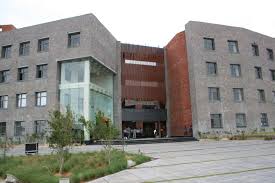Home
About Us
Eradication of HIV from CNS Reservoirs: Implications for Therapeutics Grant Program
by: Michael SaundersThe National Institutes of Health, more commonly referred to as the NIH, is an agency operating within the United States Department of Health and Human Services that is primarily responsible for financing and supporting most of the country's biomedical and health-related research studies.
|
|
The grants and programs of the NIH are all geared towards the achievement of its overall agency mission which is to "seek fundamental knowledge about the nature and behavior of living systems and the application of that knowledge to enhance health, lengthen life, and reduce the burdens of illness and disability."
In keeping with this mission, the National Institutes of Health has collaborated with The National Institute of Mental Health (NIMH), The National Institute of Neurological Disorders and Stroke (NINDS), and The National Institute of Allergy and Infectious Disease (NIAID) in an attempt to establish the Eradication of HIV from CNS Reservoirs: Implications for Therapeutics Grant Program.
The grant program essentially intends to solicit research grant applications that seek to address the concerns regarding HIV-1 persistence, while solely focusing on the Central Nervous System (CNS) of the HIV-infected people treated with Highly Active Anti-Retroviral Therapy (HAART).
The research grant proposals should revolve around these five areas of innovative research:
a) Basic research studies that will identify and characterize CNS-based cellular reservoirs of HIV-1 for individuals on Highly Active Anti-Retroviral Therapy (HAART).
(continued...)
Eradication of HIV from CNS Reservoirs: Implications for Therapeutics Grant Program
Page 2
About The Author
Michael Saunders is an editor of TopGovernmentGrants.com one the the most comprehensive Websites offering information on government grants and federal government programs. He also maintains Websites providing resources on environmental grants and grants for youth programs. |
Additional Resources
category - Health Grants
Health Resources and Services Administration's Licensure Portability Grant Program
Child Health Research Career Development Award Program
Strategic Alliances for Medications Development to Treat Substance Use Disorder Program
Children Youth and Families At-Risk Sustainable Community Project
Follow @topgovtgrant
Social Entrepreneurship
Spotlight
IMT Hyderabad Introduces Joint ‘Social Entrepreneurship’ Program with Columbia University

The Institute of Management Technology (IMT) Hyderabad has launched an innovative Social Entrepreneurship program with Columbia University’s School of International and Public Affairs (SIPA).
